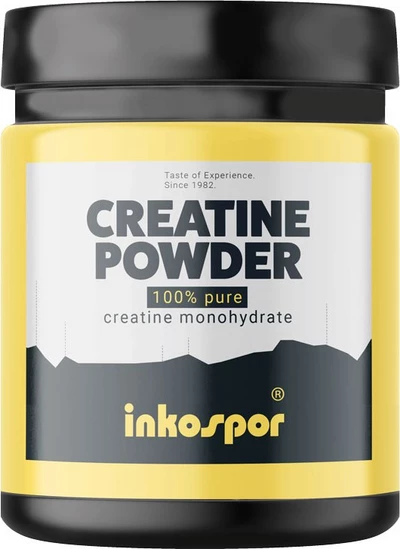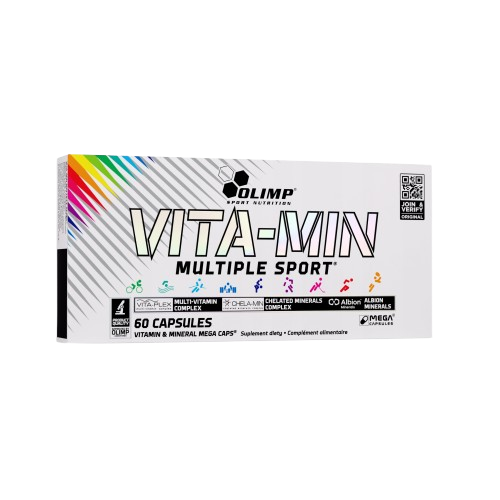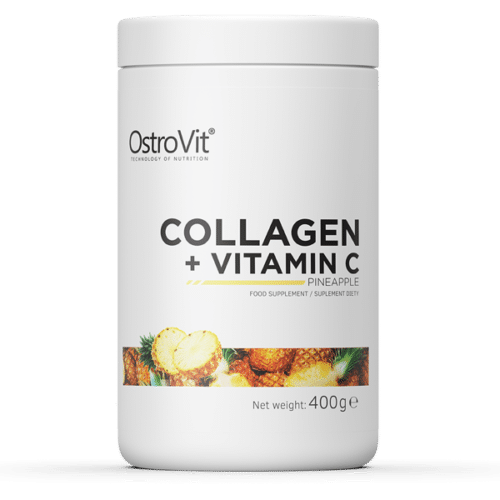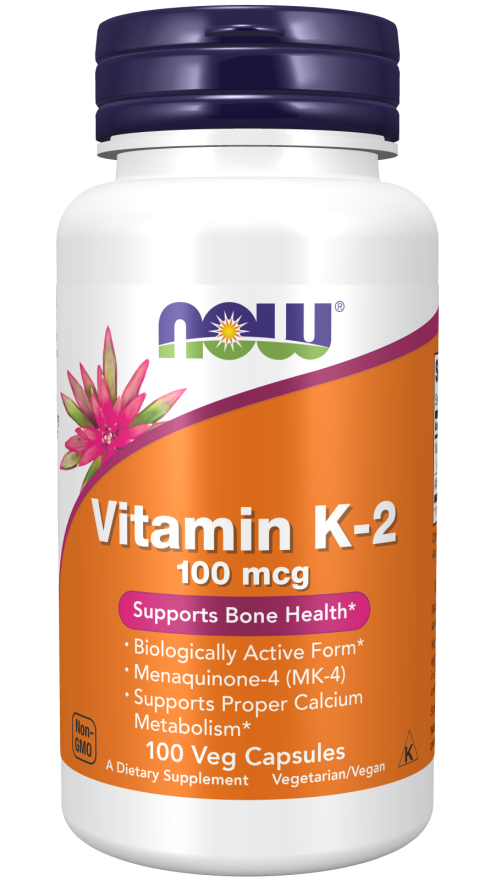Inkospor Creatine Powder (500g)
49.99 €
Out of stock
Out of stock
Sužinokite pirmi, kada produktas vėl bus sandėlyje – įveskite el. paštą. Pasistengsime sugrąžinti produktą, kad jis taptų prieinamas jums.
100% highest quality creatine monohydrate!
Dietary supplement . The highest quality creatine monohydrate in powder form with exceptional purity and an unprecedented degree of micro-granulation. Produced in Germany from the world’s best raw material and according to the strictest technological requirements.
The Inkospor Creatine Powder supplement is intended primarily to supplement the diet of competitive athletes and people exercising recreationally during periods of intense effort or those on a diet low in creatine, i.e. with a low proportion of meat and its products. It is especially recommended for athletes of strength, speed-strength, endurance-strength and figure disciplines, for example weightlifters, powerlifters, bodybuilders, fighters, sprinters, track and field athletes and football players.
Since creatine is a conditionally essential nutrient, and essential in conditions of high physical activity, it is generally worth including the Inkospor Creatine Powder supplement in your daily diet, and especially if it is a vegan or vegetarian diet, or any other healthy diet in which we limit the consumption of meat products, which are its only dietary source.
Inkospor Creatine Powder guarantees optimal supply of this deficient nutrient to the body, and thus maximum support for maintaining high health condition and increasing muscle mass, strength and endurance.
Inkospor Creatine Powder – what does it contain, how does it work?
The product contains only one ingredient, which is creatine monohydrate.
Although creatine can be produced in the human body, the process of its synthesis is long, complicated and very expensive in terms of energy. Therefore, our body willingly uses food sources of creatine, as in the case of vitamins. In everyday food, creatine is mainly found in meat dishes. Since the demand for creatine increases particularly high in the situation of increased physical activity, its main source for people burdened with high physical effort are meat foods or – more rationally due to the worldwide recommendations to limit the share of meat in a healthy diet – dietary supplements.
In terms of chemical affiliation, creatine is an amino acid. Amino acids are known mainly as the “building blocks” of proteins. Although creatine is not part of the structure of our body’s proteins, it is nevertheless a molecule with extremely high biological activity.
Creatine performs several very important functions in our body, which are of fundamental importance for life, especially when the musculoskeletal system is burdened with excessive physical effort. The functions performed by creatine are particularly important for muscle tissue. Therefore, skeletal muscles accumulate 95% of organic creatine resources, while only the remaining 5% is shared between other organs, mainly the heart, brain, liver, kidneys and testicles. In the context of supporting sports effort, the most important is the participation of creatine in energy processes and anabolic and myogenic mechanisms occurring in muscle tissue, because they are responsible for the increase in muscle mass and strength as a result of the adaptation of the musculoskeletal system to increased mechanical overloads, generated mainly by training with a large share of strength and resistance exercises.
The main function of creatine is the distribution of cellular energy. Namely, biological energy obtained from the combustion of nutrients is used by cells, including muscle fibers, in the form of high-energy phosphate radicals. The cellular stores of high-energy phosphate radicals are local pools of adenosine triphosphate, better known by the abbreviated name ATP. ATP therefore primarily stores high-energy phosphate radicals in the place where biological energy is obtained, i.e. in mitochondria. ATP is also a store and direct donor of biological energy in the form of high-energy phosphate radicals in all other cellular compartments, including myofibrils (contractile proteins of muscle fibers), which use energy for muscle work, and ribosomes, which use energy for muscle protein synthesis. However, ATP does not have the ability to move within the cell. It cannot therefore pass from the place of biological energy production, i.e. from mitochondria, to the places of its consumption, such as myofibrils or ribosomes. And this is where the fundamental function of creatine is revealed; creatine takes high-energy phosphate radicals from the mitochondrial ATP pool and is thus transformed into phosphocreatine, which distributes these radicals within the cell and transfers them to local ATP pools, including in myofibrils and ribosomes. And because the quality of work performed by the muscles depends on the energy supply of the myofibrils, and the rate of muscle protein synthesis, i.e. the degree of muscle mass and strength gain, depends on the energy supply of the ribosomes, this is why muscle creatine resources are so important for physically active people, and especially representatives of strength, speed-strength, endurance-strength and figure disciplines.
However, phosphate radicals distributed by creatine perform not only energy functions, but also informatic functions. They activate enzymes from the kinase group, which control extremely important, cellular signaling pathways of basically all hormones. From the point of view of anabolic processes occurring in muscle fibers, the most important is the research-confirmed ability of creatine to activate the signaling pathway of the kinase abbreviated as mTOR, which transfers signals stimulating muscle protein synthesis, flowing from the strongest anabolic hormones, i.e. those whose activity results in muscle development.
Studies have also shown that creatine activates the myogenesis process, which, in addition to protein anabolism, is fundamental to the adaptive response of muscles, in the form of an increase in their strength and mass, to mechanical overload initiated by strength training. The myogenesis process is dependent on satellite cells, which coexist with muscle fibers in muscle tissue. Satellite cells are muscle stem cells, which, on the one hand, as a result of damage initiated by mechanical overload, multiply and transform into additional muscle fibers, and on the other hand, they transfer their mitochondria and cell nuclei to damaged fibers, which supply energy and initiate the production of myofibrillar and sarcoplasmic proteins, regenerating fibers and increasing their size and strength.
Creatine, taken as a supplement, saves the body’s methionine resources, which are mostly used by the body, especially in conditions of high muscle activity, for the internal production of creatine, or β-methylguanidinoacetic acid. Methionine is a donor of methyl groups necessary for the production of creatine. However, methionine is also an amino acid necessary for the synthesis of muscle proteins, so this process loses its efficiency when methionine is used for the production of creatine. However, methionine, as S-adenosylmethionine (SAMe), just like in the process of creatine synthesis, also generally transfers methyl groups between biological molecules. Thus, methyl groups derived from SAMe also serve to activate the myogenesis process, and are introduced into this process by enzymes from the group of arginine methyltransferases (Prmts). Therefore, creatine supplementation also indirectly activates the myogenesis process, saving muscle resources of methionine and its methyl groups.
When it comes to supporting exercise, the relationship between creatine and hormones is also of great importance. Namely, creatine increases the level of strong anabolic hormones in our body, stimulating muscle development – testosterone and IGF-1, and at the same time lowers the level of the strongest catabolic hormone, inhibiting muscle development – myostatin.
Creatine also increases the hydration of muscle fibers, and as research has shown, an increase in the hydration of these cells acts as an anabolic signal, stimulating muscle protein synthesis. And because muscle tissue is mainly made up of water, which makes up over 75% of its mass, the increase in its hydration alone results in an increase in muscle mass.
Creatine has the same energy functions as in skeletal muscles, in cardiac muscle. Therefore, as shown in studies, creatine supplementation can be helpful in preventing cardiovascular problems and also supporting the development of aerobic capacity in endurance athletes.
Although the main storage and consumer of creatine is muscle tissue, due to its high energy demand, the brain is also a very active metabolic tissue, using up to 20% of the biological energy produced in our body, although it itself constitutes only 2% of our body mass (muscles make up 60-80% of its mass). As it turns out, both creatine itself and creatine kinase (an enzyme responsible for the biological activity of creatine) are also present in the brain, which undoubtedly proves that creatine is just as crucial as in the case of muscles for the energy management of the central nervous system. And indeed, as studies have shown, creatine deficiencies in the brain result in serious mental and developmental disorders, including mental retardation, learning problems, autism, epileptic seizures, low mood and depression, which can be reversed by creatine supplementation.
In general, the research conducted so far, focusing on the use of creatine in specific life situations, shows that:
– oral creatine intake may enable an athlete to perform a greater volume of work during repetitions in sprints or strength training sets, leading to greater gains in strength, muscle mass and muscle work efficiency;
– oral creatine can reduce the degree of dehydration of the body and prevent painful cramps and injuries to muscles, nerves, bones, ligaments, tendons and joints;
– creatine supplementation may help counteract the age-related decline in bone mineral density and skeletal muscle mass and strength, as well as the deterioration of cardiovascular function;
– creatine supplementation may improve cognitive functions of the brain, especially in older people, and also counteract mood problems, anxiety and depression;
– creatine supplementation prevents the accumulation of fat in the liver, as well as the progression of fatty liver disease in various fatty liver problems;
– creatine can improve skin firmness and reduce wrinkles.
Inkospor Creatine Powder – why choose?
The Inkospor Creatine Powder supplement comes in the form of a powder with exceptional purity and a great degree of micro-fragmentation. Thanks to this, creatine is better absorbed, which improves its transport to muscles and other target organs, dependent on the functions it performs. Inkospor Creatine Powder supports the growth of lean body mass and the progression of endurance and other effects of sports training.
Composition
Ingredients: creatine monohydrate (100%).
| Nutrient Content | in 100 g* | per daily portion (3.4 g)* |
| Energy value | 0 kJ / 0 kcal) | 0 kJ / 0 kcal |
| Fats | 0g | 0g |
| – including saturated fatty acids | 0g | 0g |
| Carbohydrates | 0g | 0g |
| – including sugars | 0g | 0g |
| Protein | 0g | 0g |
| Salt | <0.02g | <0.01g |
| * average content |
Creatine content: 88 g in 100 g / 3 g in 3.4 g powder.
Usage
Creatine supplementation contributes to increased physical performance during high-intensity exercise. The beneficial effect is achieved with a daily intake of 3 g of creatine (3.4 g of powder).
Directions for use: Mix 3.4 g of powder (1 scoop) with water or another drink. Take once a day after training, on non-training days at a similar time. Use for 4 weeks, then take a 4-week break.
Note: Creatine should not be used for a long period of time. The product should not be used by children, adolescents and people with kidney dysfunction, and should not be taken by pregnant or breastfeeding women. Regular use of creatine may lead to weight gain. Do not exceed the recommended daily intake. Dietary supplements cannot be used as a substitute for a varied diet. A healthy lifestyle and a balanced diet are recommended.
Store in a dry place, at room temperature, in a tightly closed container, out of the reach of small children.





